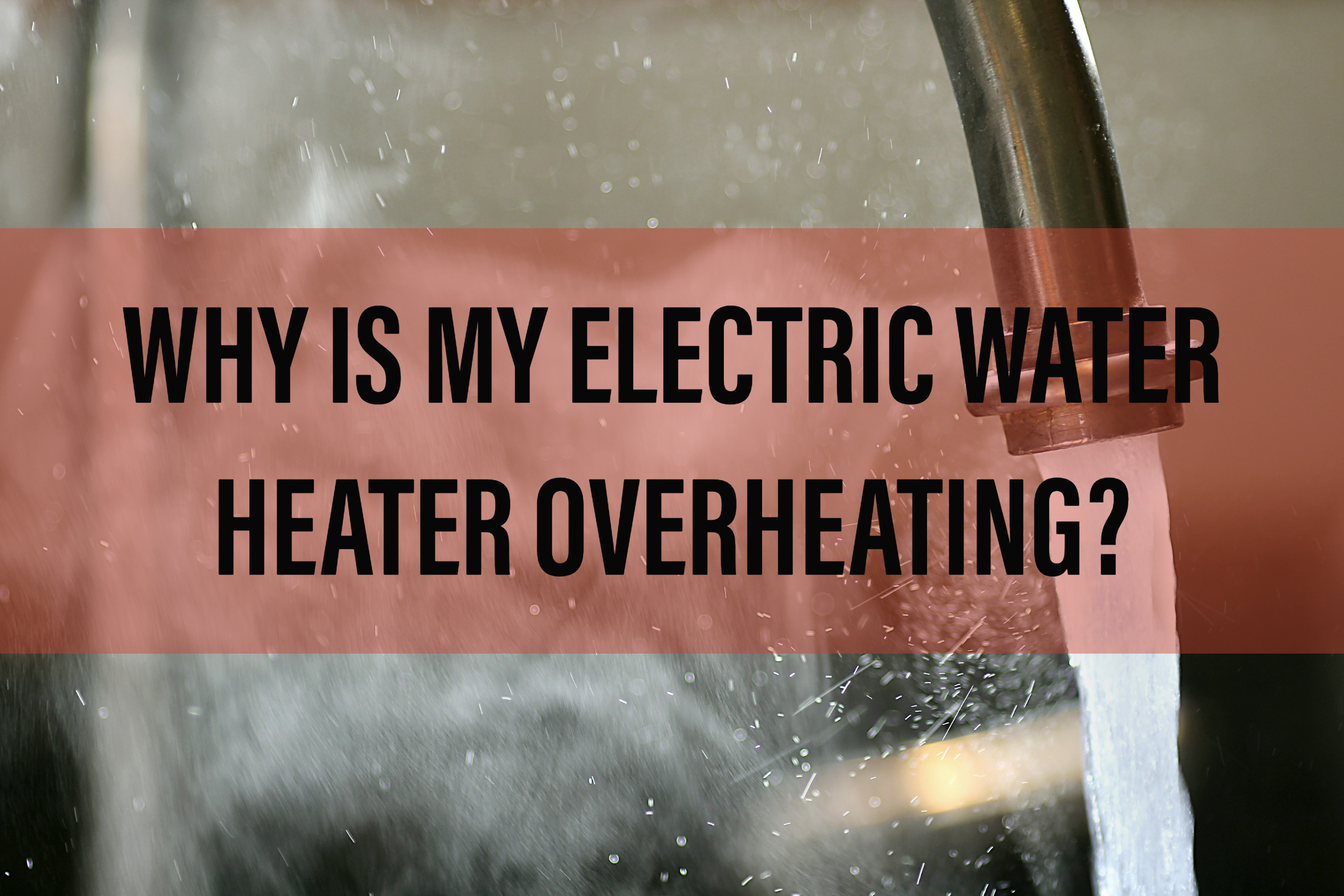One of the most common issues with electric water heaters is that they may overheat. And well, that means you could end up with scalding hot water coming out of your sinks and showers! On top of that, if your water heater has overheating issues for too long, it can cause permanent damage. So, if you ever find yourself in this situation, don’t worry! Your pals at Mason Plumbing & Drain are here to help you out! We’ve put together the three most common reasons electric water heaters overheat:
1. The Thermostat is the Culprit
The thermostat in your electric water heater plays a crucial role in maintaining the water temperature inside the tank. It’s like the control center that determines when to activate the heating element to keep your water at the perfect temperature. However, sometimes problems with the thermostat can lead to overheating. This is because if the thermostat is set too high, it will keep heating the water to that elevated temperature, even when it’s not needed. This not only wastes energy but can also lead to water that’s dangerously hot. So, let’s make sure to set it just right and save both energy and our skin!
Another common reason your water heater may be overheating is due to a wonky thermostat. It might just not be reading the water temperature correctly or properly handling the heating element. This could make the heater stay on longer than necessary, which can lead to overheating. To troubleshoot if the thermostat is causing the problem, let’s begin by checking if it’s set to the right temperature. If the issue continues, it’s a good idea to reach out to a professional who can inspect and, if necessary, replace the thermostat for you.
2. The Heating Element Is the Culprit
The heating element is the component that takes care of heating the water inside your electric water heater. Just like any mechanical part, it can wear out over time. When that happens, it may become a bit inefficient, leading to overheating issues like:
- Stuck in the “On Position”: Sometimes, a heating element can get stuck in the “on” position, continuously heating the water, even when it’s already at the set temperature. This can cause overheating, which is not ideal.
- Reduced Efficiency: As a heating element deteriorates, it gradually loses its ability to heat water efficiently. To make up for this, it may need to stay active for longer periods, which can, in turn, lead to overheating.
If you think there might be a problem with the heating element, it’s a good idea to get some help from a professional. A licensed plumber can check out the issue and swap out the element if needed. Don’t hesitate to reach out to us!
3. Sediment Buildup Is the Culprit
Over time, sediment, mainly made up of minerals and debris from your water supply, can collect at the bottom of your water heater tank. (That’s why regular maintenance is crucial!) Built-up sediment can be a bit of a troublemaker. It acts as an insulator, creating a barrier between the heating element and the water. This can cause some overheating issues since the poor heating element struggles to transfer heat effectively.
To tackle sediment buildup, the water heater tank must be flushed. Since it involves handling both water and electricity, it’s a good idea to have a licensed plumber handle this task for safety reasons.
In conclusion, an overheating electric water heater is a problem that requires prompt attention to prevent scalding, damage to your unit, and increased energy costs. By understanding these common causes of overheating and taking appropriate measures, you can ensure your electric water heater operates safely and efficiently, providing you with a steady supply of comfortably warm water. So, if you’re experiencing overheating issues, no problem! We will take care of it for you. Feel free to reach out to us! We’re here to help!
Call Mason Plumbing & Drain today at (513) 298-6996, or schedule an appointment online now by clicking here!




